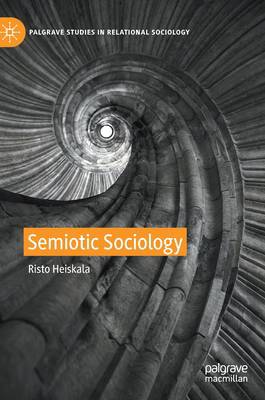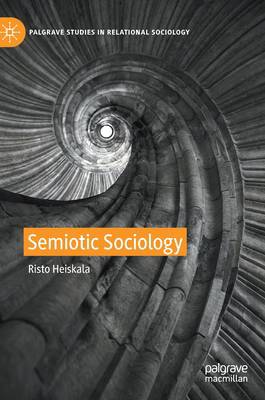
- Afhalen na 1 uur in een winkel met voorraad
- Gratis thuislevering in België vanaf € 30
- Ruim aanbod met 7 miljoen producten
- Afhalen na 1 uur in een winkel met voorraad
- Gratis thuislevering in België vanaf € 30
- Ruim aanbod met 7 miljoen producten
Omschrijving
Semiotic Sociology provides solid ground for cultural analysis in the social sciences by building up a mediation between structuralist semiology (Saussure), pragmatist semiotics (Peirce), and phenomenological sociology (Schutz, Garfinkel, Berger and Luckmann). This is a deviation from the common view that these traditions are seen as mutually exclusive alternatives and thus competitors of each other. The net result of the synthesis is that a new social theory emerges wherein action theories (Weber and rational choice) are based on phenomenological sociology and phenomenological sociology is based on neostructuralist semiotics, which is a synthesis of the Saussurean and the Peircean traditions of understanding habits of interpretation and interaction. The core issues of social research are then addressed on these grounds. The topics covered include the economy/society relationship, power, gender, modernity, institutionalization, the canon of current social theory including micro/macro and agency/structure relations, and the grounds of social criticism.
Specificaties
Betrokkenen
- Auteur(s):
- Uitgeverij:
Inhoud
- Aantal bladzijden:
- 224
- Taal:
- Engels
- Reeks:
Eigenschappen
- Productcode (EAN):
- 9783030793661
- Verschijningsdatum:
- 2/11/2021
- Uitvoering:
- Hardcover
- Formaat:
- Genaaid
- Afmetingen:
- 148 mm x 210 mm
- Gewicht:
- 467 g

Alleen bij Standaard Boekhandel
Beoordelingen
We publiceren alleen reviews die voldoen aan de voorwaarden voor reviews. Bekijk onze voorwaarden voor reviews.











